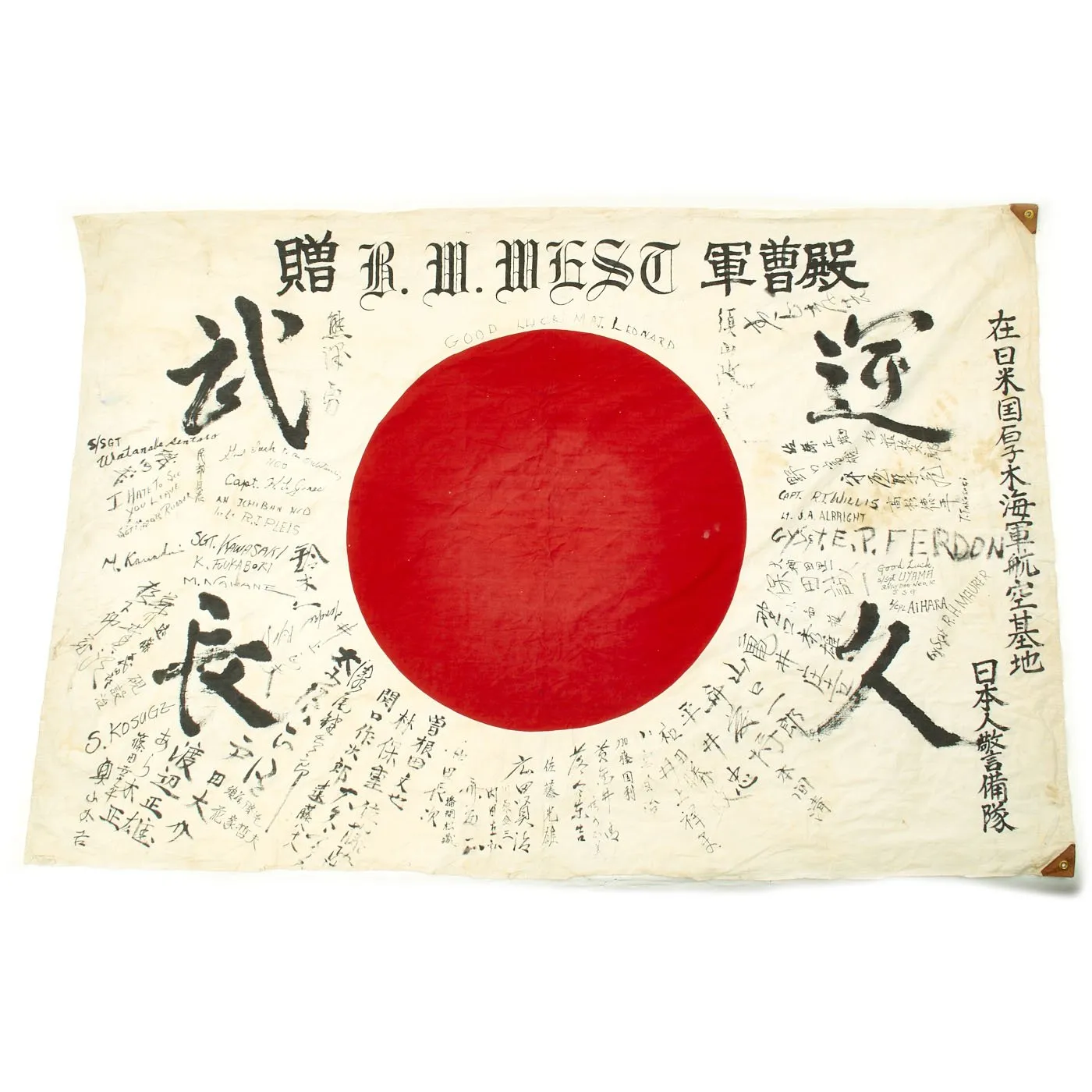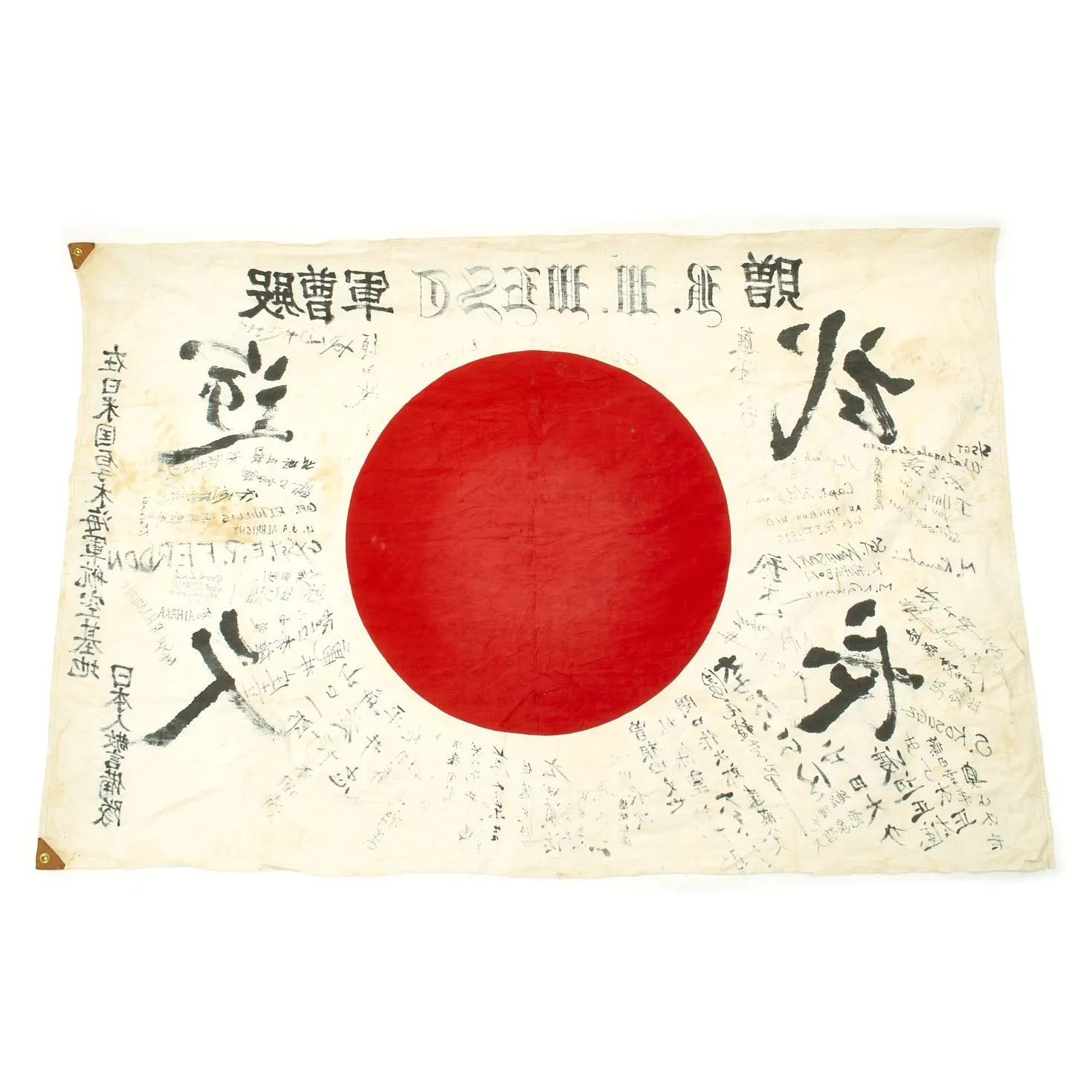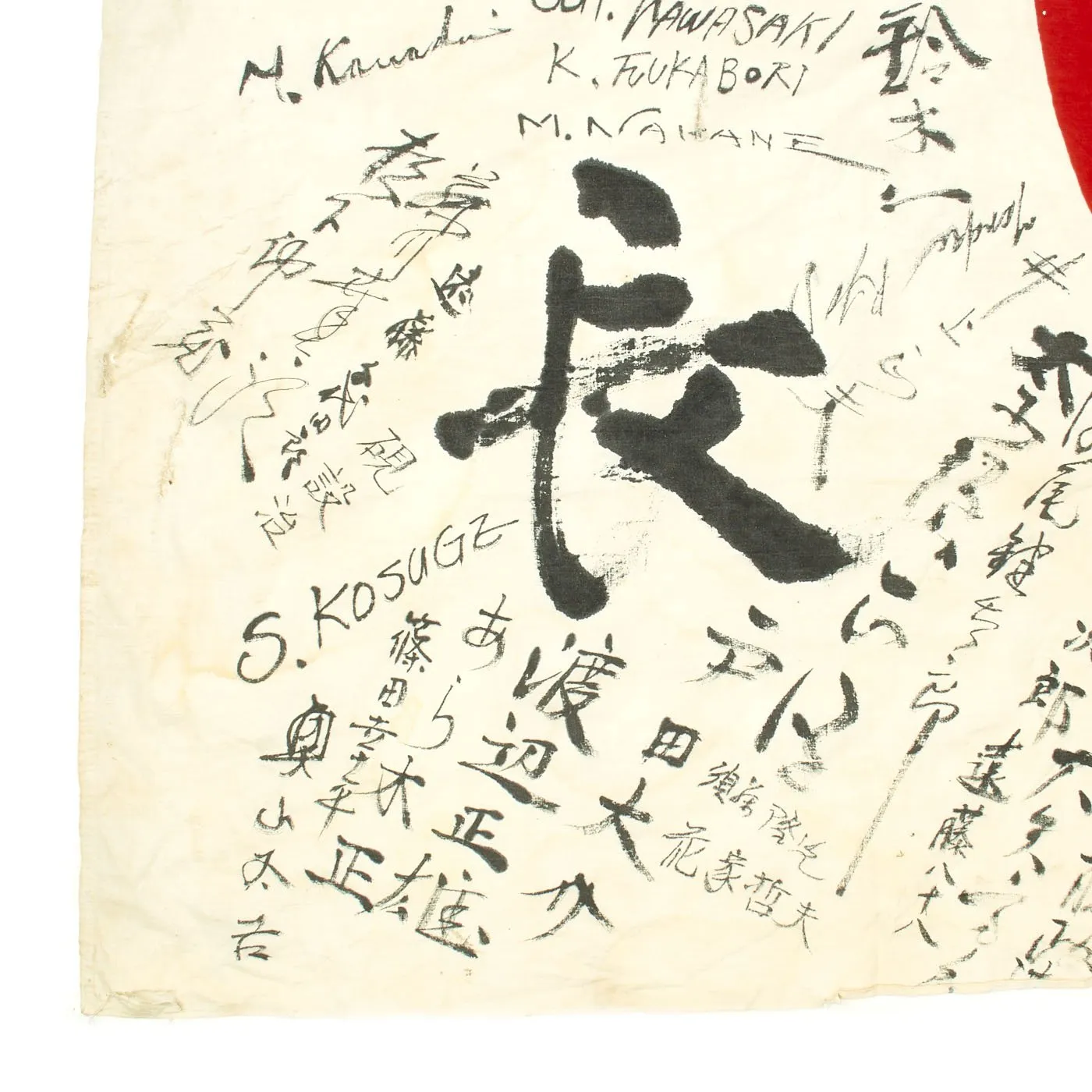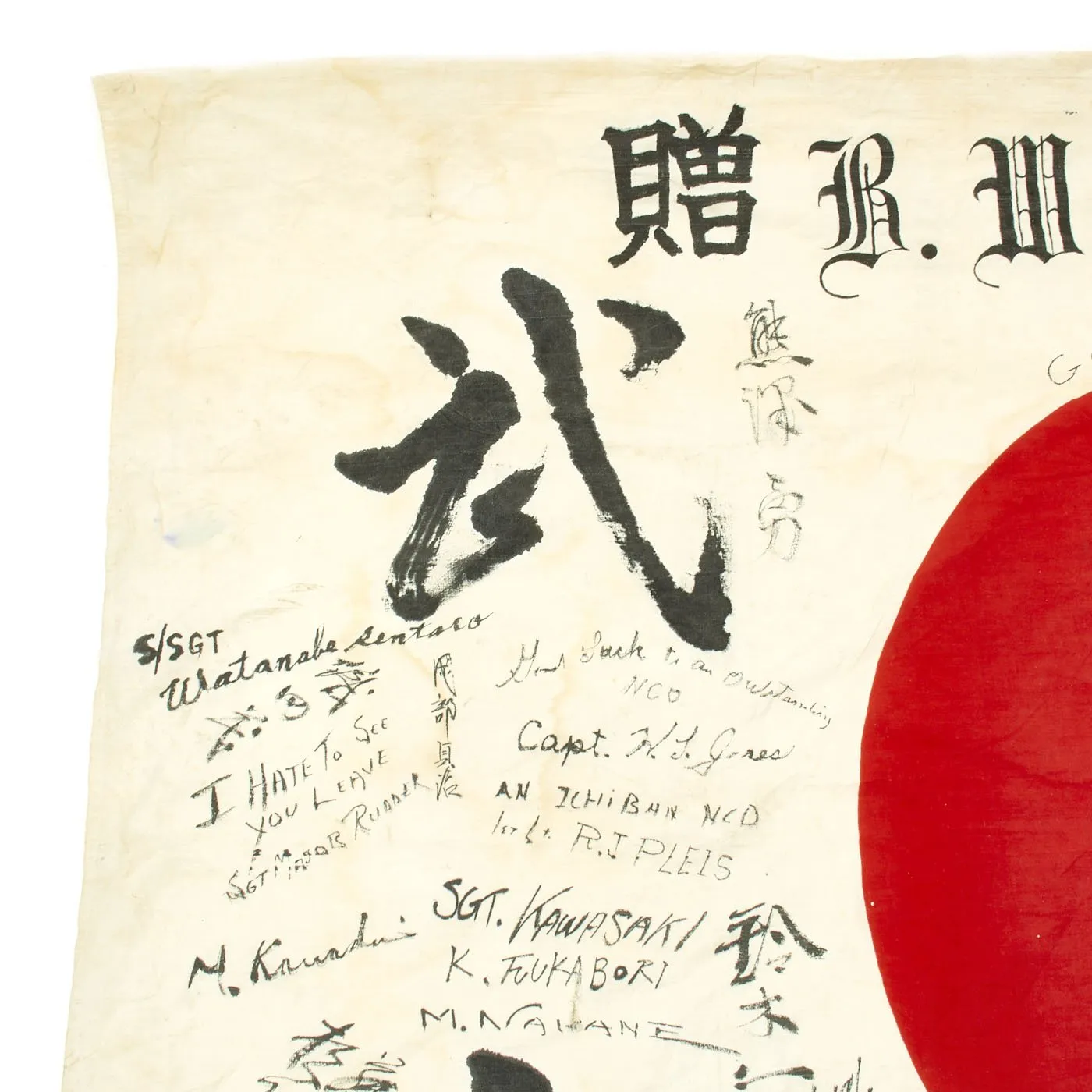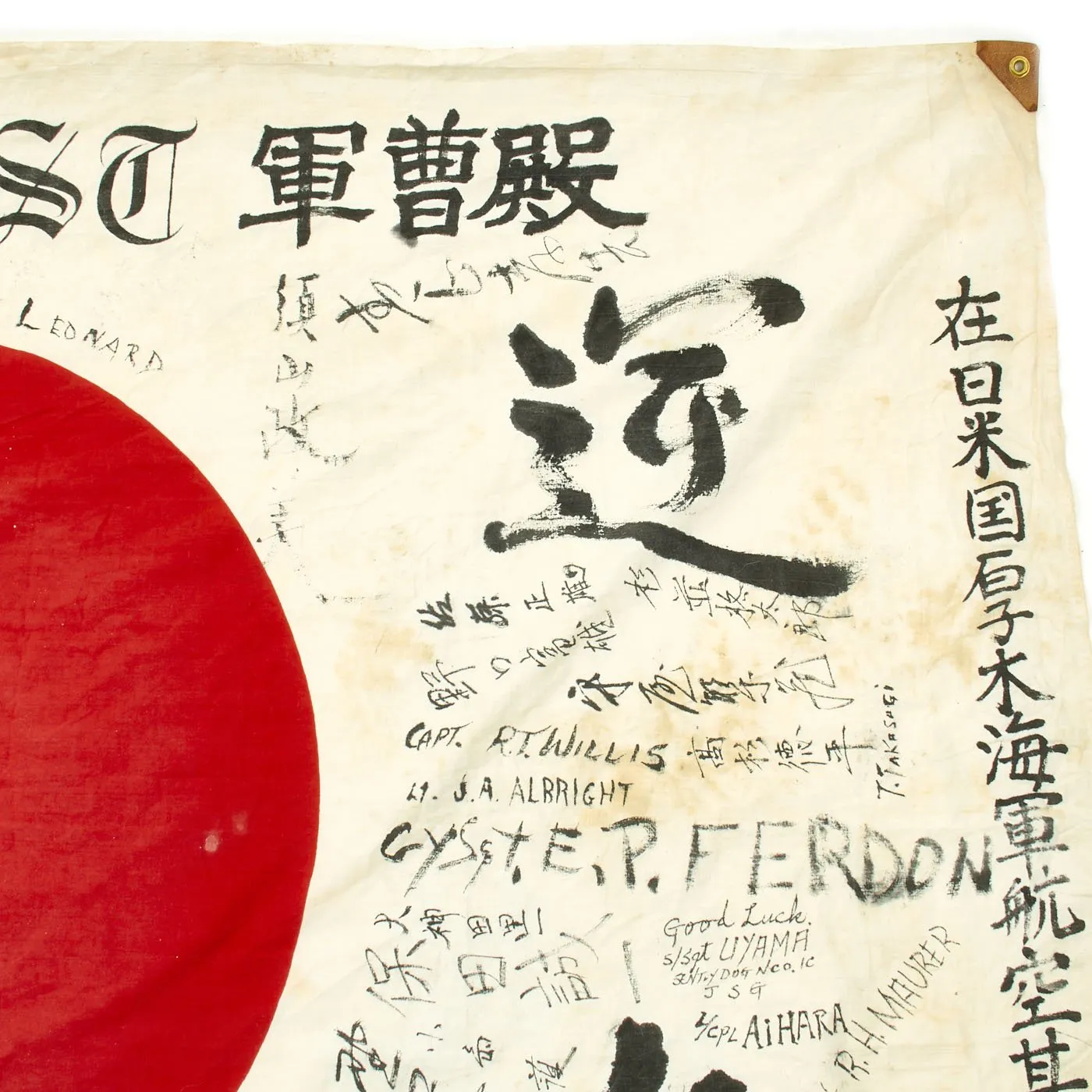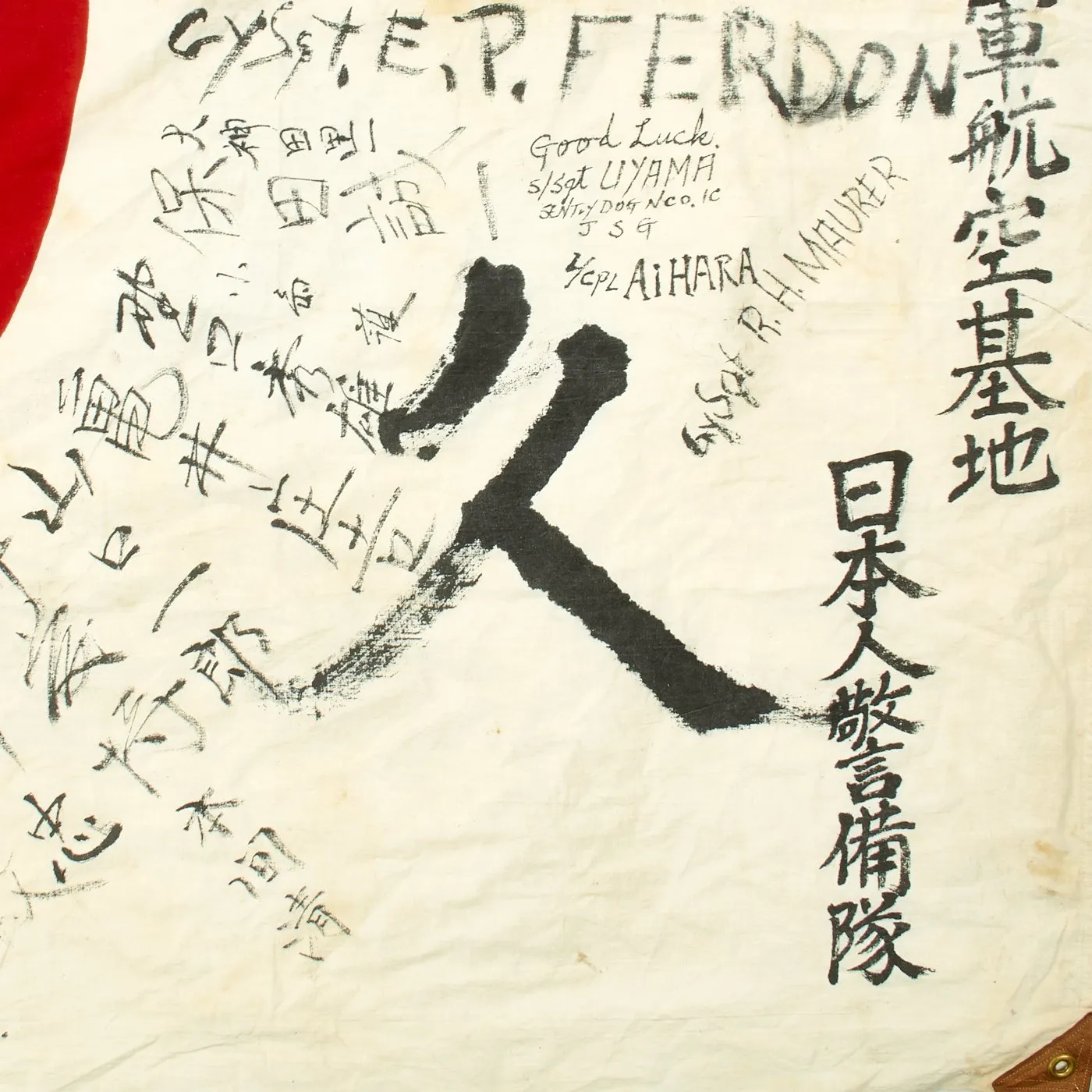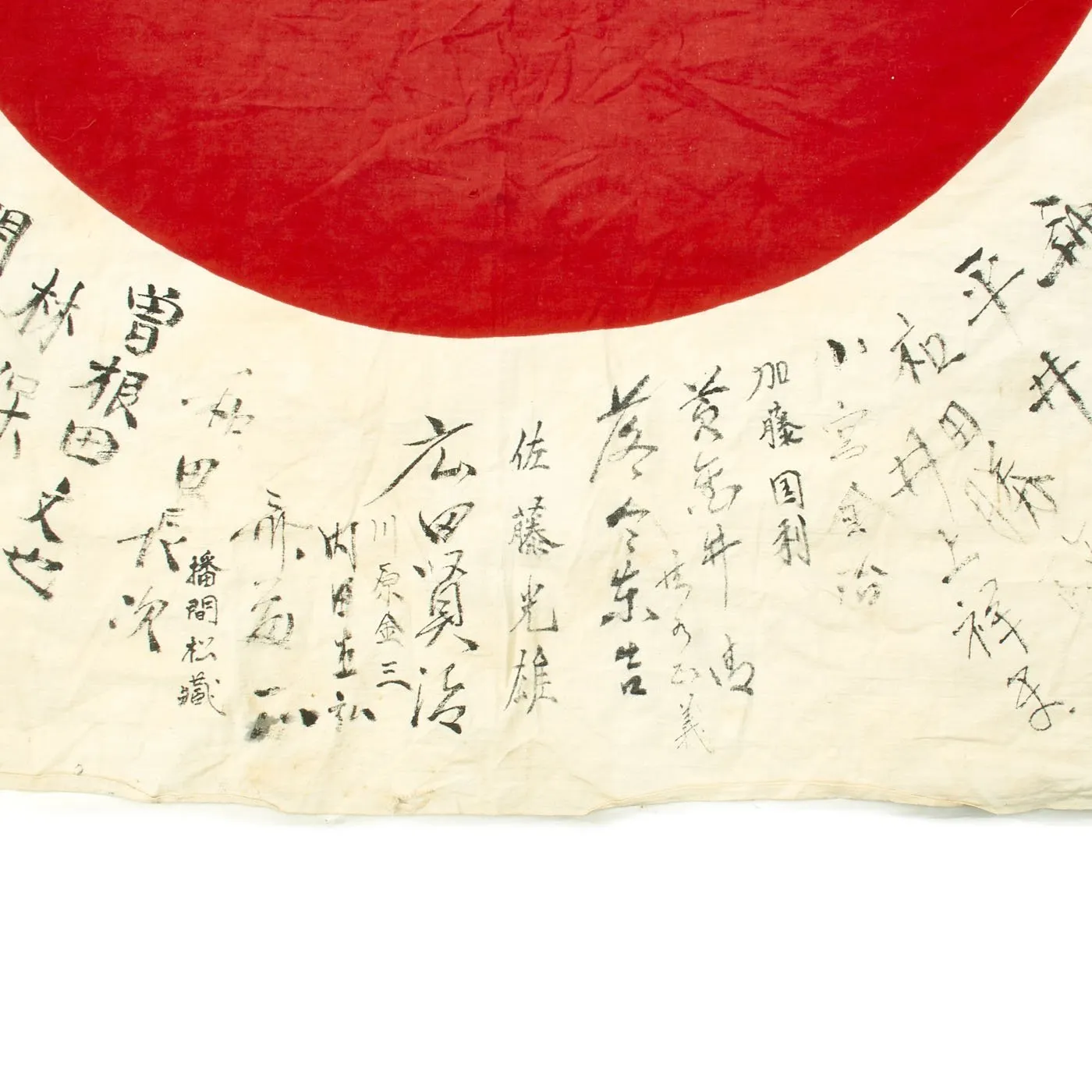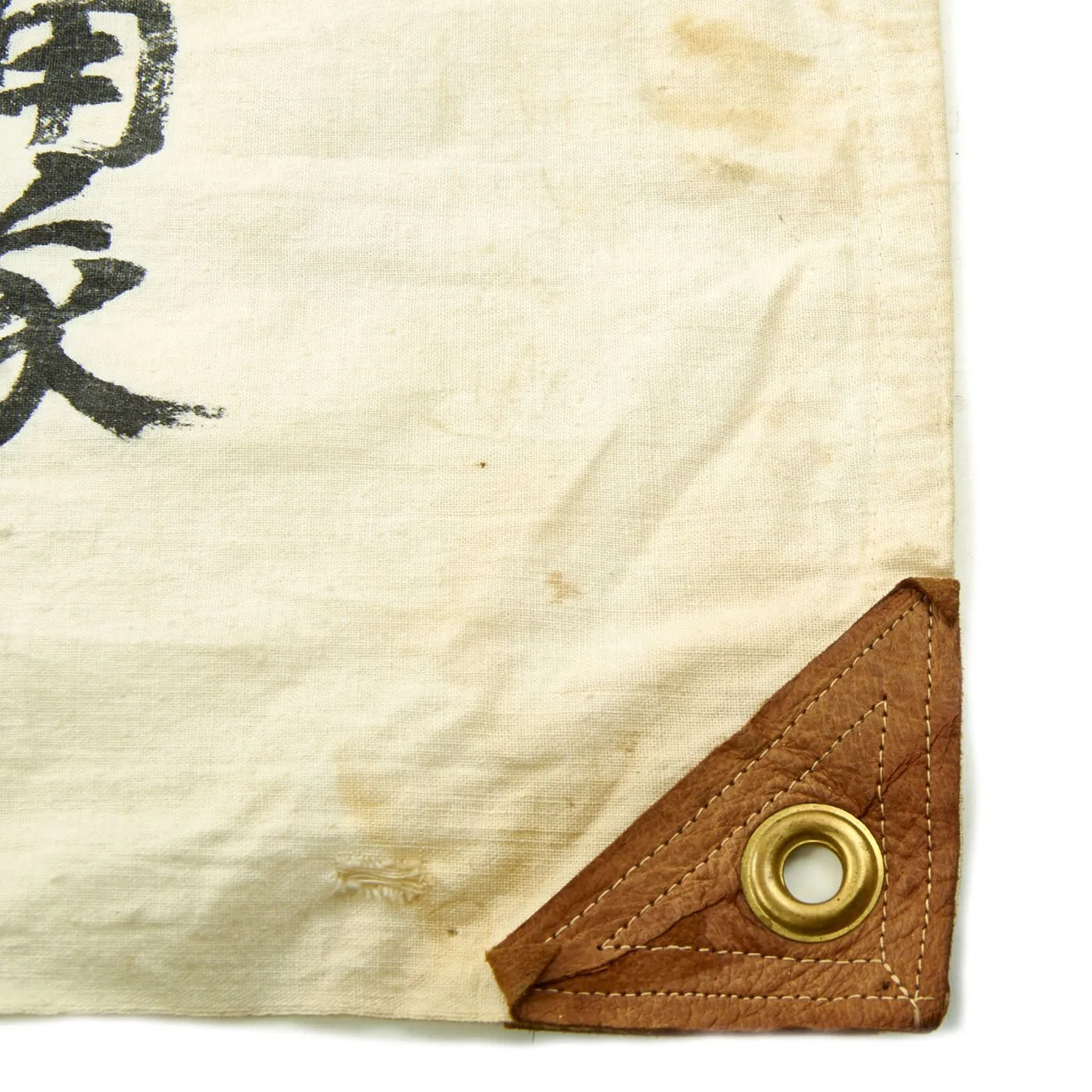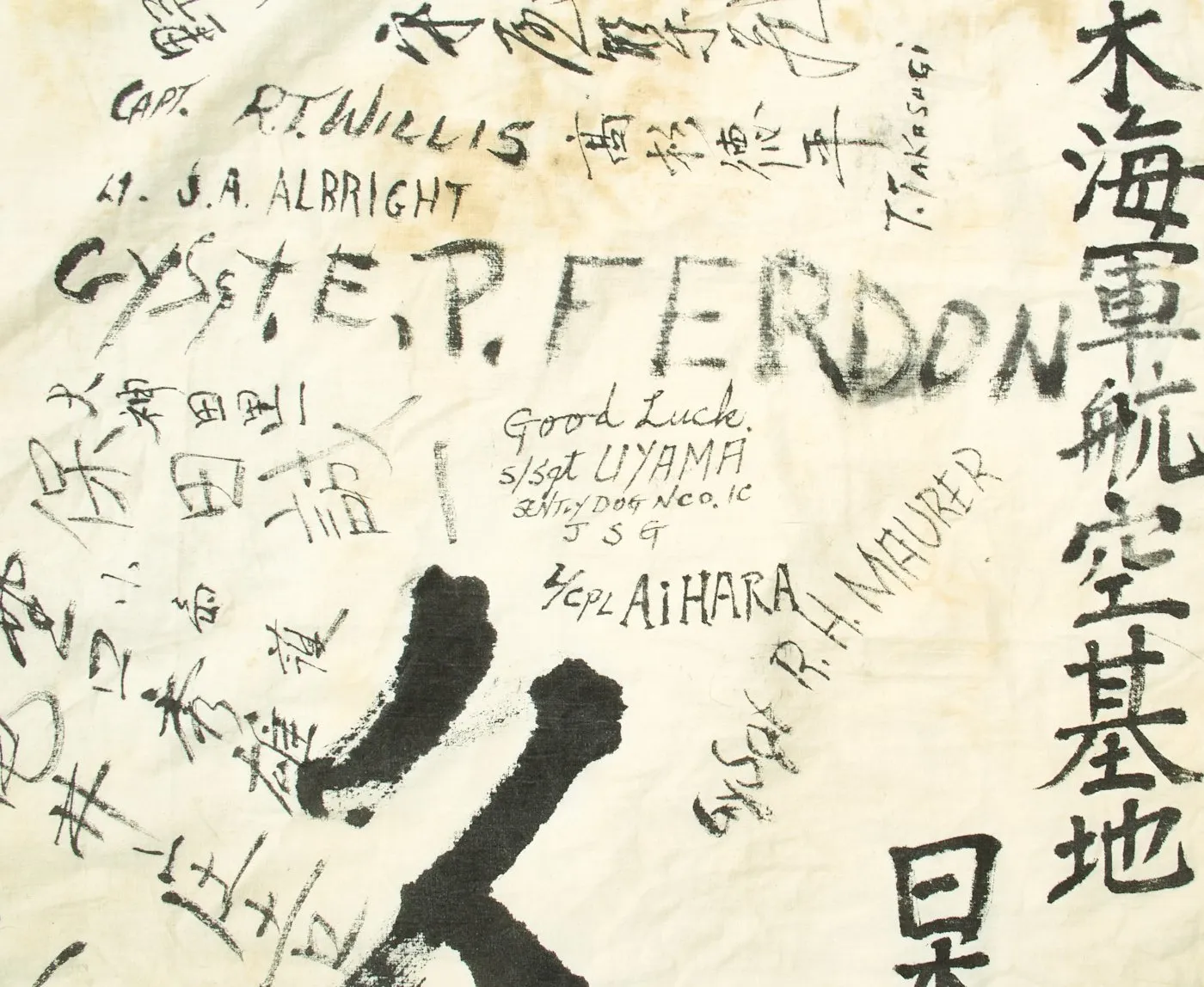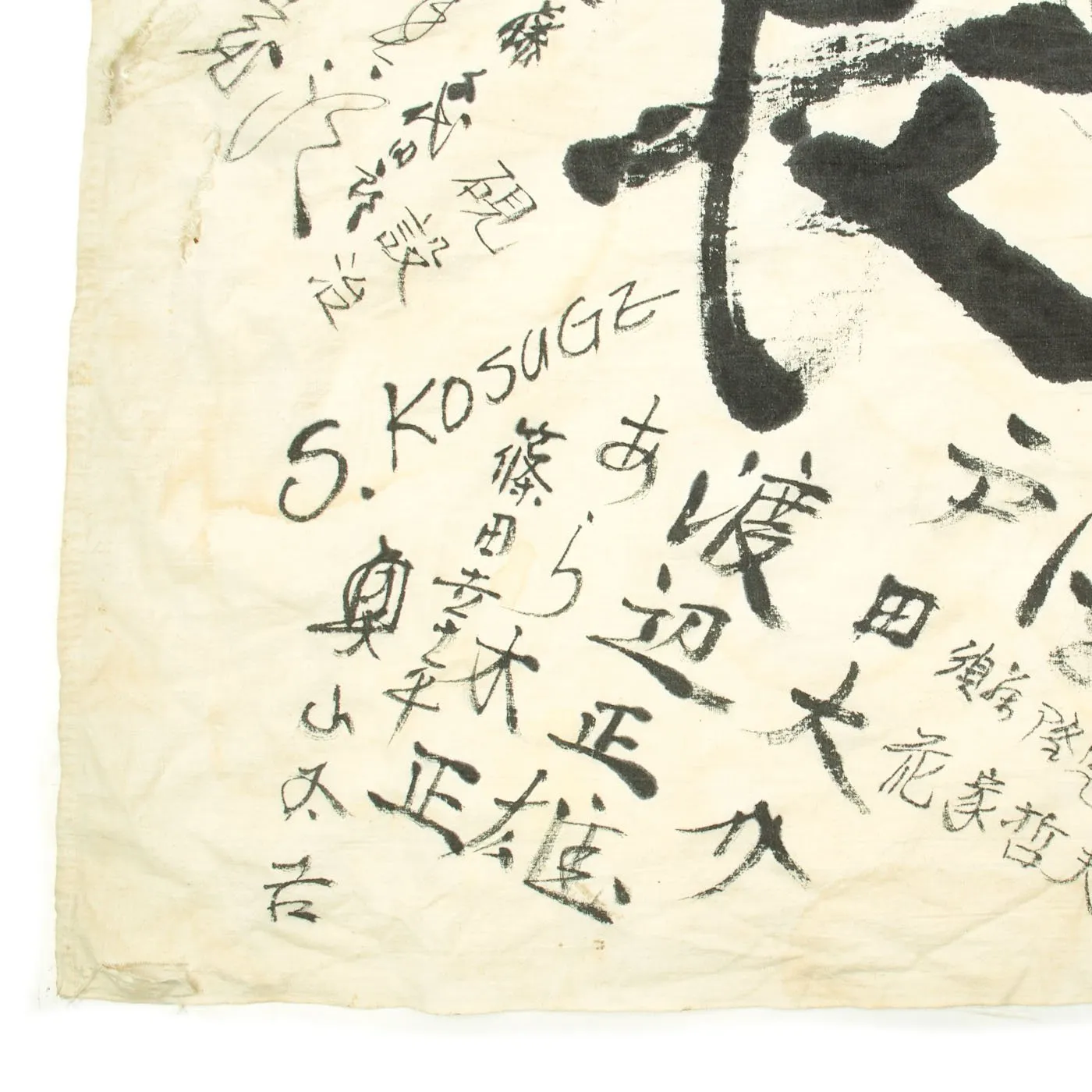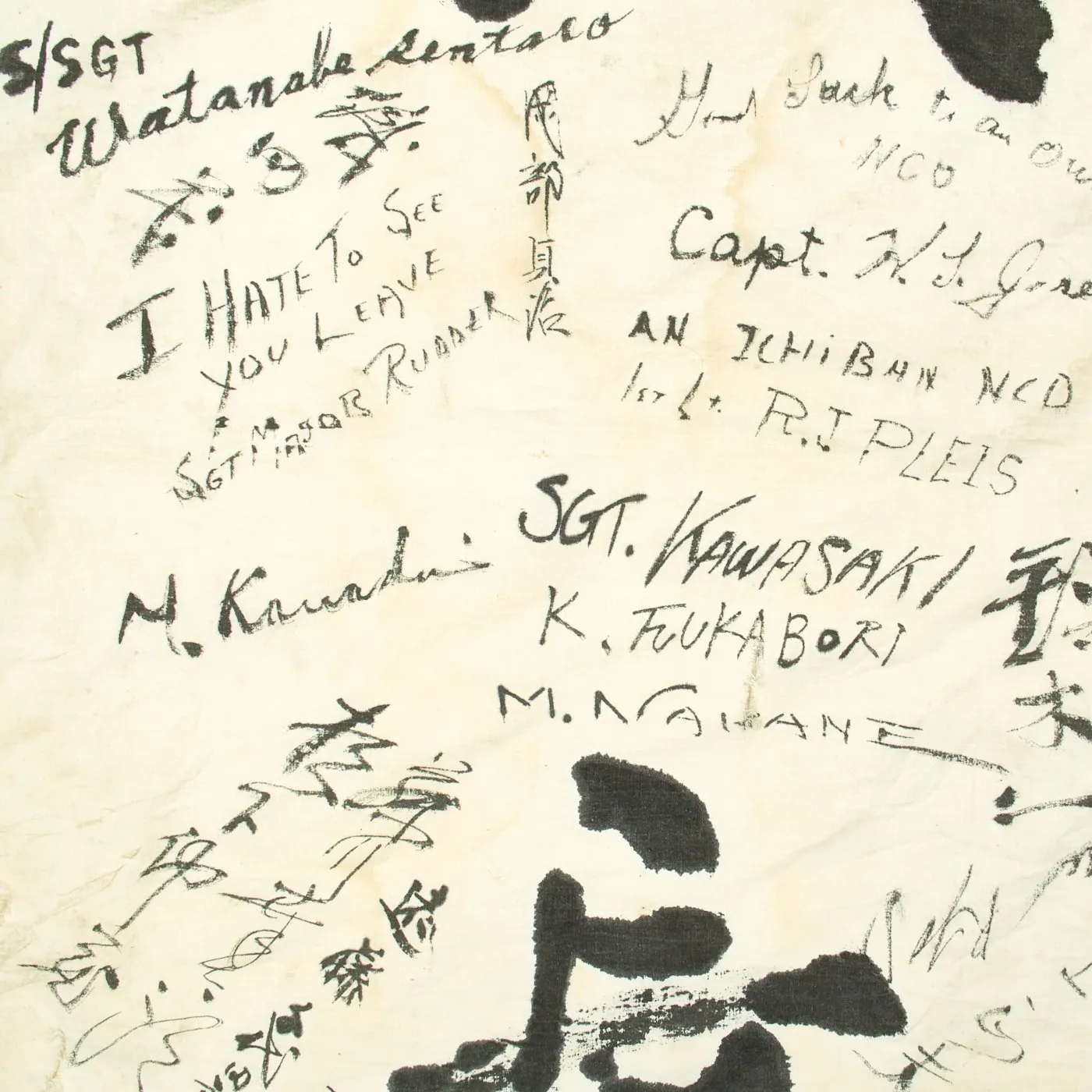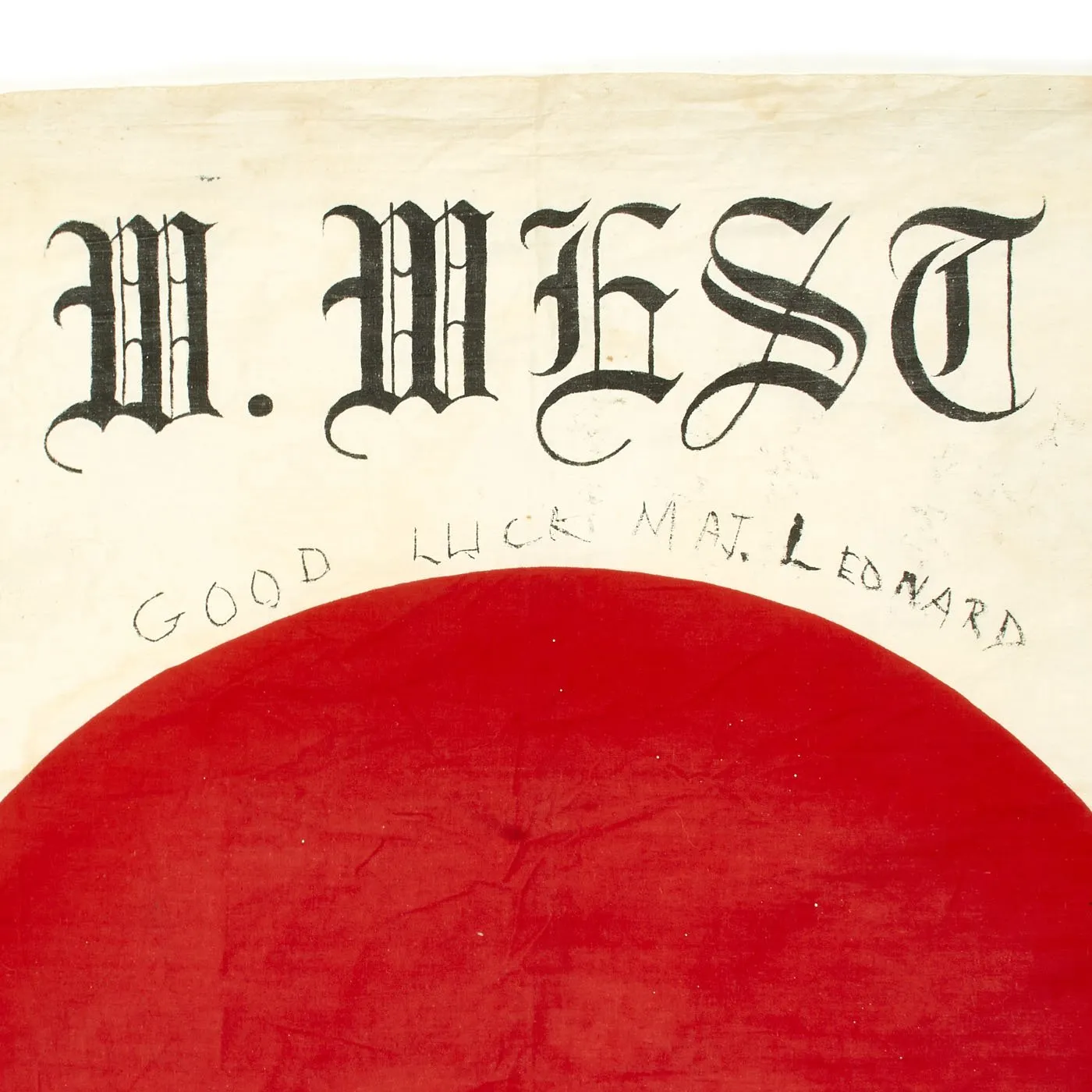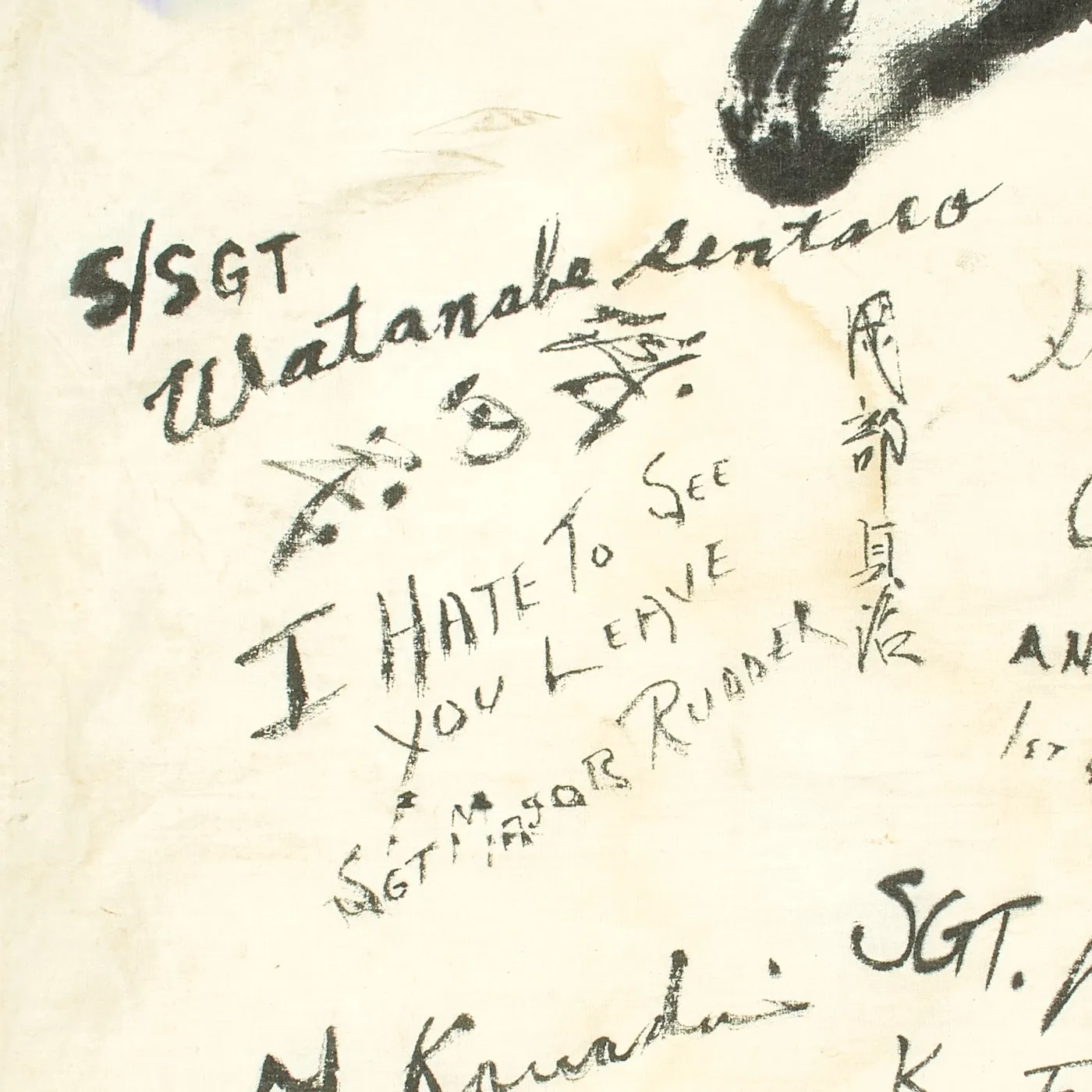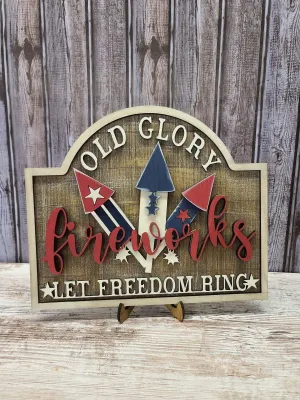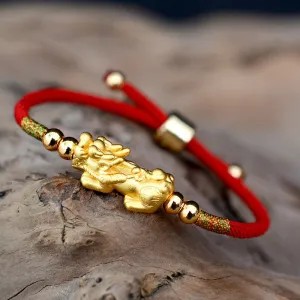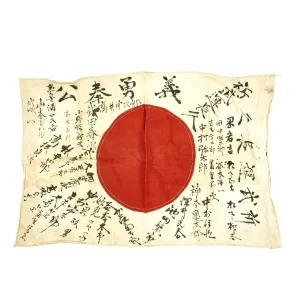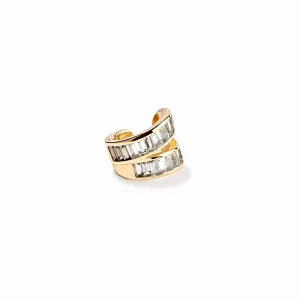Product Details
+Original Item: One-of-a-kind. Just purchased at a large military show. If you have a big interest in the WWII Pacific theater, this is for you! When we saw this, we were in awe, as we had never seen a "Good Luck Flag" of such large proportions. This canvas flag measures 78" x 52", so it's over 6 feet wide! We took a closer look however, and noticed in addition to the large size, there were a lot of other aspects that made this example unique.
The most obvious are the large "Blackletter" typeface letters at the top of the flag. As best we can tell, these read R. W. WEST, which can be hard to read, as there are a multitude of styles, and the E can look like an H, and the C like a T, but after looking at quite a number of samples, we are confident that this flag is named to R.W. West, who must have been stationed in Japan post war. From reading the many messages written in English, this was most likely given to them when they left japan.
As with most good luck flags, the flag is marked with 久 長 運 武, which reads Bu un Chou kyu ("May your military fortunes be long lasting."). On this example they are arranged around the "Sun" in the middle of the flag at the 4 corners. It is also signed with many names and short messages, both in English and Japanese. One message reads "Good Luck to an Outstanding NCO, Capt. H.J. Jones", while another reads "GOOD LUCK MAJ. LEONARD". There is even "I HATE TO SEE YOU LEAVE, SGT. MAJOR RUDDER." Apparently R. W. West was well respected and loved by his commanding officers, as well as fellow NCOs.
Other people just wrote their names and ranks, and it is very interesting to note that while some of them are typical "American" names, others are Japanese names, written in English. We do not know if these are American "Nisei" Japanese, or Japanese-born. Definitely a great research opportunity here. We've never seen a large Japanese Flag converted to a "Good Luck" flag like this, but this definitely is one.
The flag itself has some small stains and tears, but the writing is still quite legible, and this would make a fine display piece for a wall. The original leather corner reinforcements with grommets are fully intact.
Ready to display!
The Good Luck Flag, known as hinomaru yosegaki (日の丸 寄せ書き) in the Japanese language, was a traditional gift for Japanese servicemen deployed during the military campaigns of the Empire of Japan, though most notably during World War II. The flag given to a soldier was a national flag signed by friends and family, often with short messages wishing the soldier victory, safety, and good luck.
The Japanese call their country's flag hinomaru, which translates literally to "sun-round", referencing the red circle on a white field. When the hinomaru was signed, the Japanese characters were usually written vertically, and radiated outward from the edge of the red circle. This practice is referenced in the second term, yosegaki, meaning "sideways-writing". The phrase hinomaru-yosegaki can be interpreted as "To write sideways around the red sun", describing the appearance of the signed flag. This particular example completely unique is written in old KANJI the writing are mainly Japanese names of this soldier's family and friends with quotes and phrases.




